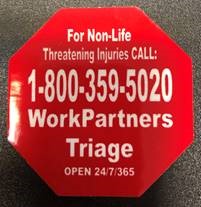What We Know about Omicron
CDC has been collaborating with global public health and industry partners to learn about Omicron, as we continue to monitor its course. We don’t yet know how easily it spreads, the severity of illness it causes, or how well available vaccines and medications work against it.
Spread
The Omicron variant likely will spread more easily than the original SARS-CoV-2 virus and how easily Omicron spreads compared to Delta remains unknown. CDC expects that anyone with Omicron infection can spread the virus to others, even if they are vaccinated or don’t have symptoms.
Severe Illness
More data is needed to know if Omicron infections, and especially reinfections and breakthrough infections in people who are fully vaccinated, cause more severe illness or death than infection with other variants.
Vaccines
Current vaccines are expected to protect against severe illness, hospitalizations, and deaths due to infection with the Omicron variant. However, breakthrough infections in people who are fully vaccinated are likely to occur. With other variants, like Delta, vaccines have remained effective at preventing severe illness, hospitalizations, and death. The recent emergence of Omicron further emphasizes the importance of vaccination and boosters.
Treatments
Scientists are working to determine how well existing treatments for COVID-19 work. Based on the changed genetic make-up of Omicron, some treatments are likely to remain effective while others may be less effective.
We have the Tools to Fight Omicron
Vaccines
Vaccines remain the best public health measure to protect people from COVID-19, slow transmission, and reduce the likelihood of new variants emerging.
- COVID-19 vaccines are highly effective at preventing severe illness, hospitalizations, and death.
- Scientists are currently investigating Omicron, including how protected fully vaccinated people will be against infection, hospitalization, and death.
- CDC recommends that everyone 5 years and older protect themselves from COVID-19 by getting fully vaccinated.
- CDC recommends that everyone ages 18 years and older should get a booster shot at least two months after their initial J&J/Janssen vaccine or six months after completing their primary COVID-19 vaccination series of Pfizer-BioNTech or Moderna.
Masks
Masks offer protection against all variants.
- CDC continues to recommend wearing a mask in public indoor settings in areas of substantial or high community transmission, regardless of vaccination status.
- CDC provides advice about masks for people who want to learn more about what type of mask is right for them depending on their circumstances.
Testing
Tests can tell you if you are currently infected with COVID-19.
- Two types of tests are used to test for current infection: nucleic acid amplification tests (NAATs) and antigen tests. NAAT and antigen tests can only tell you if you have a current infection.
- Individuals can use the COVID-19 Viral Testing Tool to help determine what kind of test to seek.
- Additional tests would be needed to determine if your infection was caused by Omicron.
- Visit your state, tribal, local, or territorial health department’s website to look for the latest local information on testing.
- Self-tests can be used at home or anywhere, are easy to use, and produce rapid results.
- If your self-test has a positive result, stay home or isolate for 10 days, wear a mask if you have contact with others, and call your healthcare provider.
- If you have any questions about your self-test result, call your healthcare provider or public health department.
Until we know more about the risk of Omicron, it is important to use all tools available to protect yourself and others.
What CDC is Doing to Learn about Omicron
Virus Characteristics
CDC scientists are working with partners to gather data and virus samples that can be studied to answer important questions about the Omicron variant. Scientific experiments have already started. CDC will provide updates as soon as possible.
Variant Surveillance
In the United States, CDC uses genomic surveillance to track variants of SARS-CoV-2, the virus that causes COVID-19 to more quickly identify and act upon these findings to best protect the public’s health. CDC established multiple ways to connect and share genomic sequence data being produced by CDC, public health laboratories, and commercial diagnostic laboratories within publicly accessible databases maintained by the National Center for Biotechnology Informationexternal icon (NCBI) and the Global Initiative on Sharing Avian Influenza Dataexternal icon (GISAID). If a variant is circulating at 0.1% frequency, there is a >99% chance that it will be detected in CDC’s national genomic surveillance.
For more information concerning COVID-19 Omicron Variant: https://www.cdc.gov/coronavirus/2019-ncov/variants/omicron-variant.html
If you have any questions or concerns related to COVID-19 please email: HR@berggroup.us
To properly prepare for any governmental, or agency policies that may be implemented beyond our control, The Berg Group is collecting COVID-19 vaccination status information at this time. The purpose of this survey is to understand, and manage the risks associated with the likelihood of a vaccination mandate passed down to us from a U.S., state, local or client organization, which we will be required to adhere to. This information is to be used for projects that require vaccinated employees on site, or other mandated requirements beyond our control. This information will be protected and be kept confidential.
Please complete this questionnaire by going to the link below or scanning the QR code:
https://portal.berggroup.app/covid-19-vaccination-status/.

